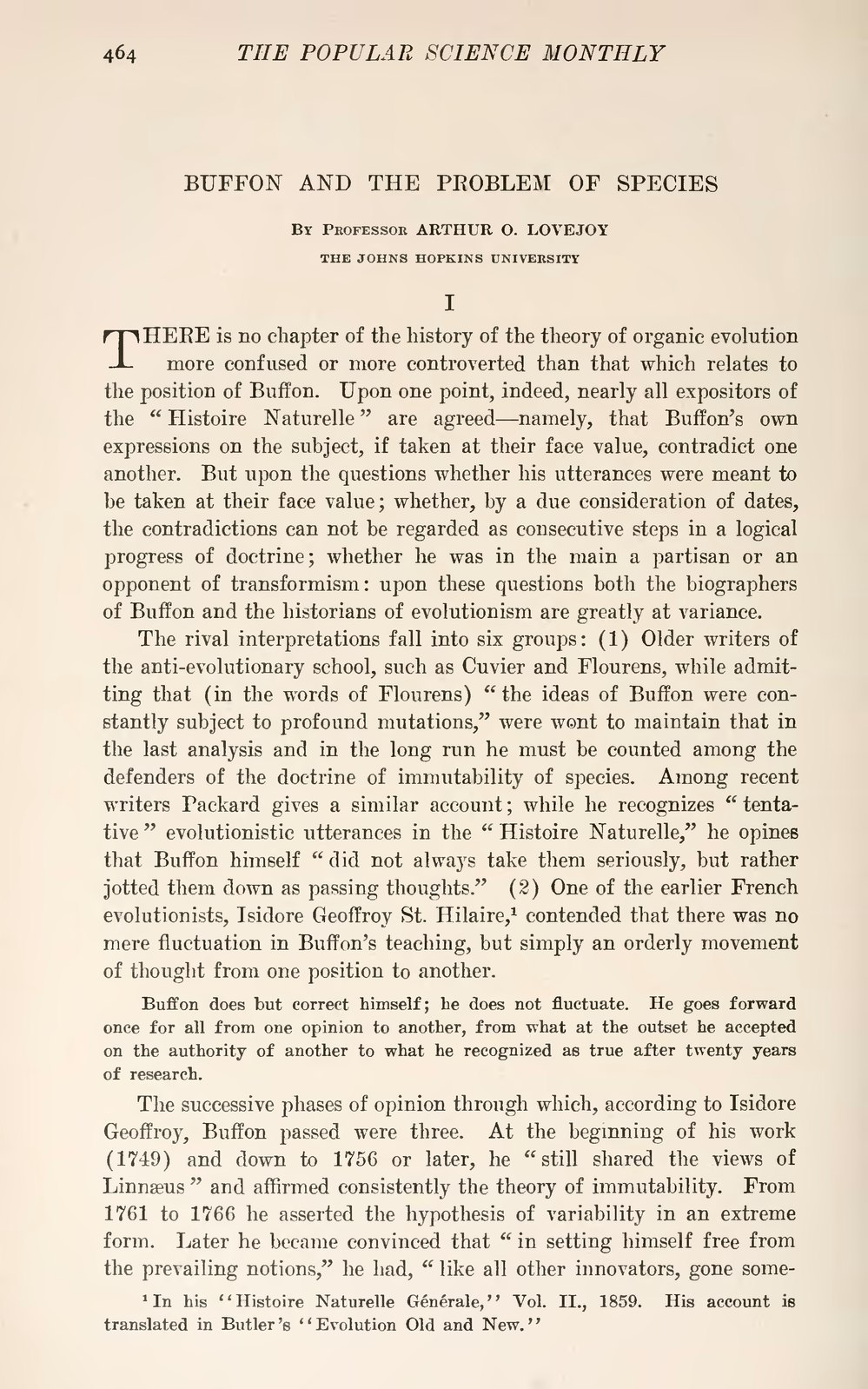| BUFFON AND THE PROBLEM OF SPECIES |
By Professor ARTHUR O. LOVEJOY
THE JOHNS HOPKINS UNIVERSITY
I
THERE is no chapter of the history of the theory of organic evolution more confused or more controverted than that which relates to the position of Buffon. Upon one point, indeed, nearly all expositors of the "Histoire Naturelle" are agreed—namely, that Buffon's own expressions on the subject, if taken at their face value, contradict one another. But upon the questions whether his utterances were meant to be taken at their face value; whether, by a due consideration of dates, the contradictions can not be regarded as consecutive steps in a logical progress of doctrine; whether he was in the main a partisan or an opponent of transformism: upon these questions both the biographers of Buffon and the historians of evolutionism are greatly at variance.
The rival interpretations fall into six groups: (1) Older writers of the anti-evolutionary school, such as Cuvier and Flourens, while admitting that (in the words of Flourens) "the ideas of Buffon were constantly subject to profound mutations," were wont to maintain that in the last analysis and in the long run he must be counted among the defenders of the doctrine of immutability of species. Among recent writers Packard gives a similar account; while he recognizes "tentative" evolutionistic utterances in the "Histoire Naturelle," he opines that Buffon himself "did not always take them seriously, but rather jotted them down as passing thoughts." (2) One of the earlier French evolutionists, Isidore Geoffroy St. Hilaire,[1] contended that there was no mere fluctuation in Buffon's teaching, but simply an orderly movement of thought from one position to another.
The successive phases of opinion through which, according to Isidore Geoffroy, Buffon passed were three. At the beginning of his work (1749) and down to 1756 or later, he "still shared the views of Linnæus" and affirmed consistently the theory of immutability. From 1761 to 1766 he asserted the hypothesis of variability in an extreme form. Later he became convinced that "in setting himself free from the prevailing notions," he had, "like all other innovators, gone some-
- ↑ In his "Histoire Naturelle Générale, "Vol. II., 1859. His account is translated in Butler's "Evolution Old and New."

